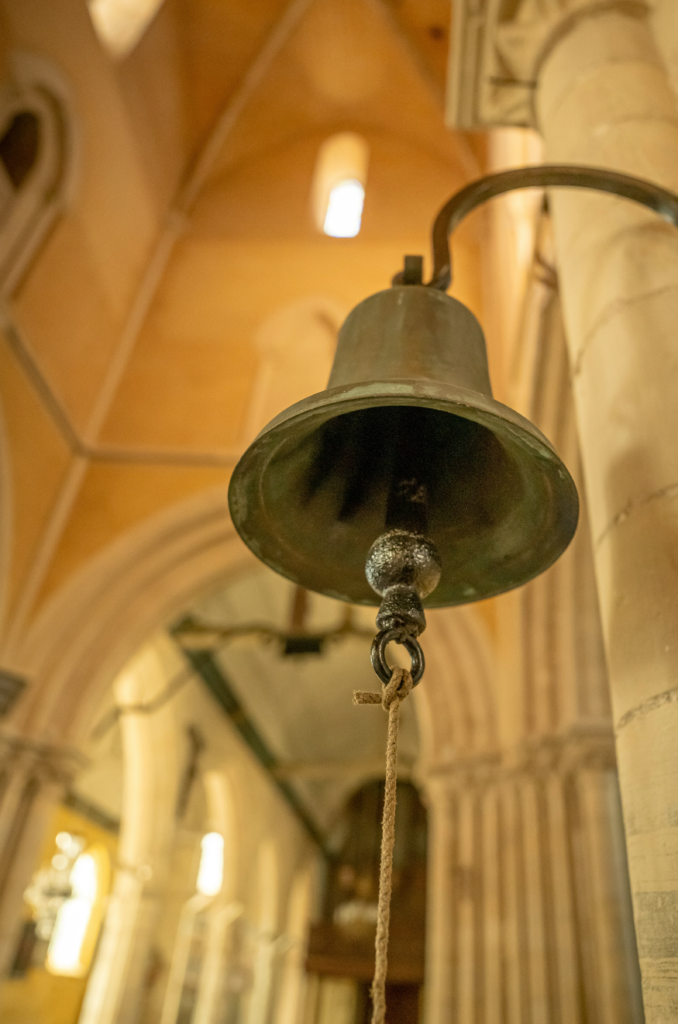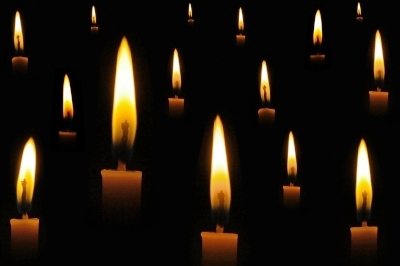When our eyes met, she flashed the sweetest smile.
I decided to peel off from the group of visitors to the renovated warehouse in Beirut,
sheltering 600 people fleeing the bombing of their homes. The inviting smile of this young mother was irresistible.
We introduced ourselves, and I queried, “How old are you?”
 “Twenty-two,” she replied.
“Twenty-two,” she replied.
“Oh, and is this your daughter?”
“Yes, she’s 18 months, and I also have a 5-year-old boy. And I’m pregnant!” she beamed.
I inquired, “Where are you from? How long have you been here?”
“From the valley,” she replied. “We’ve been here a week. Before that, we took shelter in a school, but when students returned, we had to move on. That’s when we came here. It is much better here to have our own room.”
“Oh, I love the valley!”, I enthused. “I used to visit all the time; the air is so fresh. Is your home there?”
Her face fell. “No, not anymore.” She shared a photo of a huge pile of rubble.

“Oh, I am so sorry!” I exclaimed. Then I cautiously asked, “Was anyone home when the
bomb hit?”
Tears welled up in her eyes; her head dropped. “Yes, my two cousins.” Grief gripped my heart.
For several days, back in the comfort of my  home in Jordan, I struggled to come to terms with this grief. This total stranger had instantly morphed into my new friend, with her brilliant smile – and her teary eyes.
home in Jordan, I struggled to come to terms with this grief. This total stranger had instantly morphed into my new friend, with her brilliant smile – and her teary eyes.
Trying to lighten my burdened heart, I put on a playlist of holiday music. Singers harmonized on a yuletide carol by Henry Wadsworth Longfellow:
I heard the bells on Christmas Day
Their old, familiar carols play,
And wild and sweet
The words repeat
Of peace on earth, good-will to men!
But then, the stanzas took a somber turn that I’d never noticed before:
Then from each black, accursed mouth
The cannon thundered in the South,
And with the sound
The carols drowned
Of peace on earth, good-will to men.
And in despair, I bowed my head;
“There is no peace on earth,” I said;
“For hate is strong,
And mocks the song
Of peace on earth, good-will to men.”
Hmmm. What prompted his lyrics? Curious, I researched his story.
Longfellow penned this carol on Christmas Day 1864, two years into America’s bitter Civil War. He was caring for his gravely wounded son, and also grieving the agonizing death of his beloved wife, whom he could not save when her dress had caught fire.
But now, cannon balls are obsolete. Innovation has much more effective ways to kill. Yet that hate is the same. And what’s worse, 24/7 newsfeeds now numb empathy into apathy.
The raw candor of Longfellow’s anguish strikes deep within my heart. Like him, I lament. Yet I mourn with the hope his final stanza expresses:
Then pealed the bells more loud and deep:
God is not dead, nor doth He sleep;
The Wrong shall fail,
The Right prevail,
With peace on earth, good-will to men.
 A favorite quote of mine is “The light shines in the darkness and the darkness does not overcome it.” That does not deny the reality of darkness. But I can face it squarely, while I wait for that light.
A favorite quote of mine is “The light shines in the darkness and the darkness does not overcome it.” That does not deny the reality of darkness. But I can face it squarely, while I wait for that light.
My new friend expressed that hope to me, along with her tearful smile: “Our situation is very difficult, but after hardship comes relief. This release from suffering is a light from God.”
In this darkness, with these strangers as our new friends, we’re resolute to pursue “a light in every hard place in our generation!”

Janice L Hayashi Haskell
Vice-President of Programme
